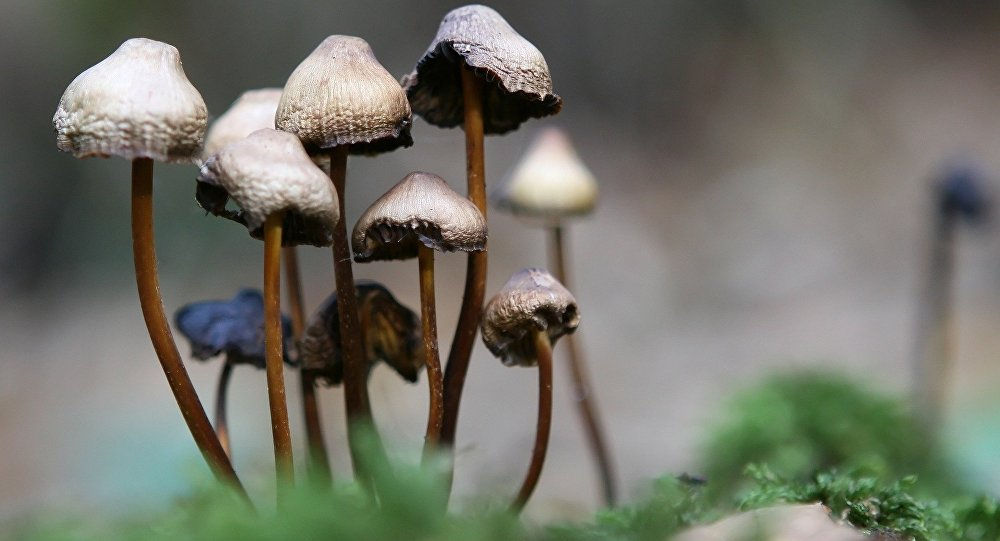
Psilocybin Assisted Therapy
Introduction
Psilocybin is the naturally occurring psychedelic compound in certain mushrooms. There are more than 180 species of mushrooms that contain psilocybin, or its derivative psilocin. Psilocybin mushrooms have a long history of use in Mesoamerica in spiritual and religious rituals and are currently one of the most popular recreational psychedelics.
A series of preclinical trials in the 1960s and 1970s suggested a promising role for psilocybin and other psychedelics in treating a number of disorders, including cluster headaches, mood disorders, and addiction. Since the federal government reclassified psilocybin as a Schedule I drug in the 1970s, research on its therapeutic effects has been virtually non-existent up until recently. Numerous anecdotal accounts of psilocybin’s therapeutic effects have finally caught the attention of medical professionals, with increased funding towards scientific study of psychedelic mushrooms, from groups such as MAPS and The Beckley Foundation.
Psilocybin mushrooms are among the most powerful plant medicines known to affect brain function, and research shows that they can alter the structure of the brain as well. Changes in neuronal structure are important because they can impact how the brain is wired, and consequently, how we feel, think and behave.
History
Psilocybin mushrooms appear to have been part of human culture since its very inception. Art dating back to 5,000 B.C. and ranging across multiple continents shows how different cultures across the world venerated the mystical healing powers of the magic mushroom. Starting in the 1960’s and continuing today, scientific studies are being carried out that investigate the short- and long-term effects of the active ingredient in psychoactive mushrooms- psilocybin- and their results are overwhelmingly positive.
Psilocybin for mental health issues and addiction recovery
The so-called classic hallucinogens were used in preclinical trials to treat addiction in the 1950s and 60s with promising results, but again, once many of these psychedelics were made illegal in the US and most of Europe, research into the use of them in a therapeutic context came virtually to a halt. But recent years have seen a resurgence in using psilocybin and other psychedelics as therapeutic tools to treat addiction and deteriorating metal health problems.
Psilocybin, as part of an assisted treatment plan, has shown promise in treating alcoholism in non-clinical trials in a recent study from 2015. Significant reductions in drinking and abstinence from drinking were reported after psilocybin administration as part of a treatment programme.
Psilocybin also appears to be a potential tool in helping people quit smoking tobacco. In a recent trial, 2 to 3 treatment sessions with psilocybin as part of a larger cognitive-behavioural therapy programme for smoking cessation had an 80% success rate with smoking cessation in study participants (12 out of 15 subjects). By comparison, conventional smoking cessation method success rates — gum, patches, cold turkey, etc. — have about a 35% success rate.
Benefits
The experience of taking psychoactive mushrooms with appropriate dosages, intention, and setting are profound and often life-changing. Those who have taken psilocybin report feelings of wellbeing, interconnection, insights through visions, and a renewed appreciation for nature and life itself. The value of a profound and lasting spiritual experience cannot be overstated, both for healthy adults and for those suffering from psychological disorders. A huge array of physical and mental ailments can be traced back to trauma, unhealthy patterns of behaviour, stress, and struggling with identity. The power of psilocybin mushrooms to facilitate experiences of bliss, higher understanding, and interconnection with the universe is an incredibly powerful healing tool that can treat many ailments right at their source, and science is now showing that they can be used in a broad range of therapeutic applications
What to expect
A typical treatment on a moderate dose of psilocybin mushrooms includes increased intensity of emotional experiences, increased introspection and altered psychological functioning in the form of “hypnologic experiences” — that is, a sort of transitory state between wakefulness and sleep. It is commonly described as a waking dream state, and brain imaging studies show that a mushroom journey is neurologically like dreaming.
Perceptual changes such as visions, synaesthesia (mixing sensory modalities, e.g. hearing colours, tasting sounds), emotional changes, and a distorted sense of time are all characteristic of a mushroom journey as well. These effects are typically felt around 1 to 1.5 hours after orally ingesting a psilocybin mushroom dose.
You’ll begin to notice a change in your perception of the world around you. You may experience changes in your visual perception.
Your thoughts and emotions will also start to change. It’s not uncommon to have a sense of openness to thoughts and feelings you tend to avoid in your everyday life. A sense of wonder and delight with the world around you, the people in your life, and your thoughts is also quite common, along with a sense of peace and connection with the world.
Strong emotions are often experienced. It’s recommended that you don’t resist these emotions in either direction, but rather let them work their own course. Many who do report strong negative emotions also report a simultaneous sense of calm acceptance and detachment from them, especially if they remind themselves that the emotions are temporary.
Physical side effects can vary from individual to individual and include changes in heart rate (up or down), changes in blood pressure (up or down), nausea, increased tendon reflexes, tremors, dilated pupils, restlessness or arousal, and changes in coordinated movement.
Conclusion
We believe all the above-described experiences add up to the therapeutic effect of this therapeutic treatment.
By re-living difficult moments of your life, opening up to feelings you normally try to avoid, and a sense of interconnection and understanding of yourself (forgiveness), you create new powerful levels of understanding that facilitate healing.
This treatment can and should be repeated when the first experience is integrated. The integration period may take a month or two, depending on the depth of your experience.
Due to the scheduled nature of Psilocybin in Portugal we are unable to offer this medicine.



